TAXILA: The Taxila Museum, home to a comprehensive collection of Gandharan art dating from the 1st to the 7th centuries CE, is exhibiting a collection of never-before-seen artefacts this week that aim to highlight the the region’s centuries old multiculturalism, the curator of the event told Arab News this week.
The Gandhara region makes up parts of present day northern Pakistan and northeast Afghanistan. The area is famous for its Gandhara style of art which is heavily influenced by the classical Greek and Hellenistic traditions.
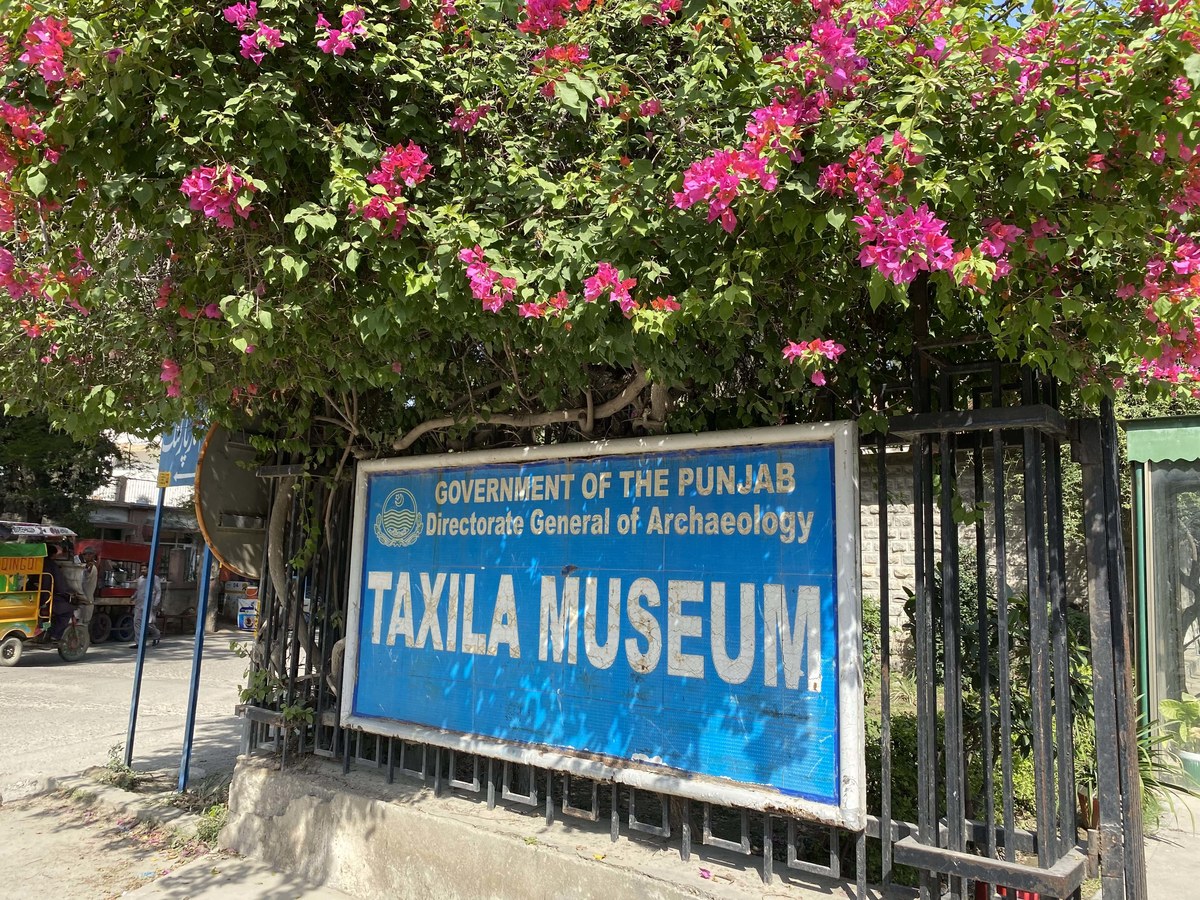
The Taxila Museum in Taxila, Pakistan on October 13, 2021 (AN Photo)
The 10-day exhibition, which is currently ongoing, has been organized by the Taxila Museum in collaboration with the United Nations Educational, Scientific and Cultural Organization (UNESCO) and the Punjab Tourism for Economic Growth (PTEG) Project.
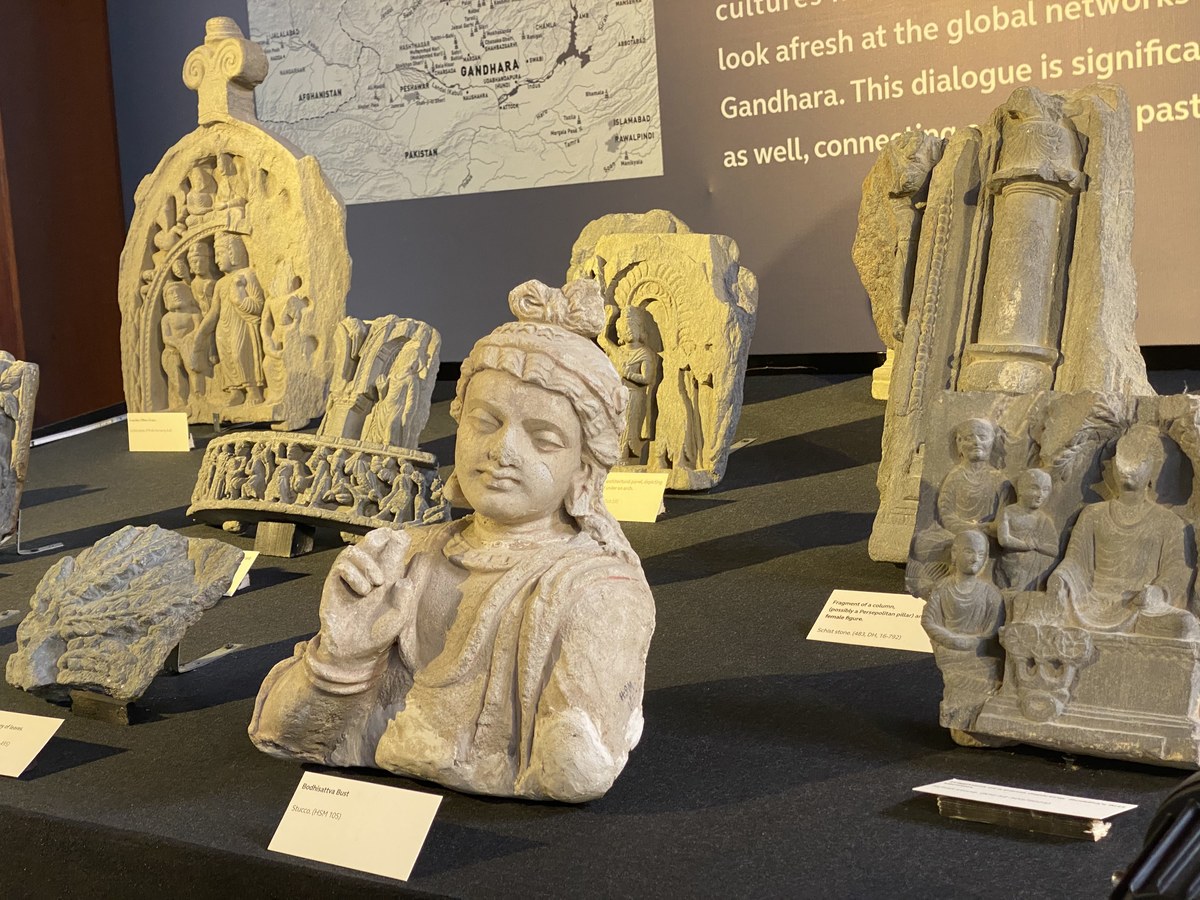
An assortment of recovered artifacts from the Gandhara period at the Gandhara Roots and Routes exhibit at the Taxila Museum in Taxila, Pakistan on October 13, 2021 (AN Photo)
The show is part of a larger Gandhara festival hosted by the museum where historians, researchers and artisans have been invited to discuss the area’s rich history, with a focus on how it served as a place where communities from different geographies and cultural backgrounds were crossing paths even centuries ago.
None of the 35 objects displayed at the show have been seen before by the public, and all were discovered in Taxila and its surrounding areas.
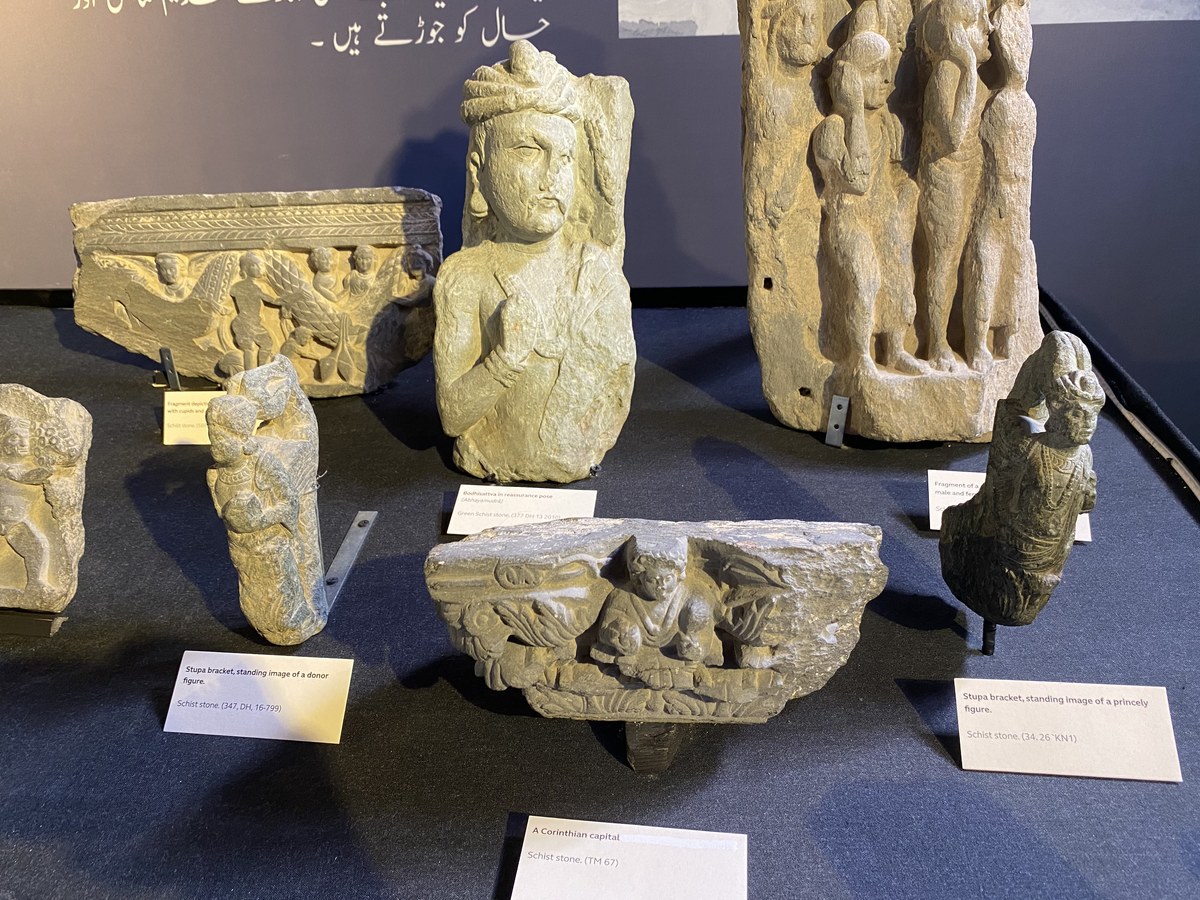
An assortment of recovered artifacts from the Gandhara period at the Gandhara Roots and Routes exhibit at the Taxila Museum in Taxila, Pakistan on October 13, 2021 (AN Photo)
“This exhibition shows we have been making global interactions and cultural exchanges for centuries,” Maliha Noorani, the curator of the Gandhara Roots and Routes exhibition, said.
“The curatorial lens of the show was to highlight intersectionality or live intercultural encounters that were happening in the ancient region of what is now present-day Pakistan,” the curator said. “That is what has been represented throughout the exhibition: how transmission of artistic production was happening. You can find Greco-Roman, East Asian and ancient Persian references.”
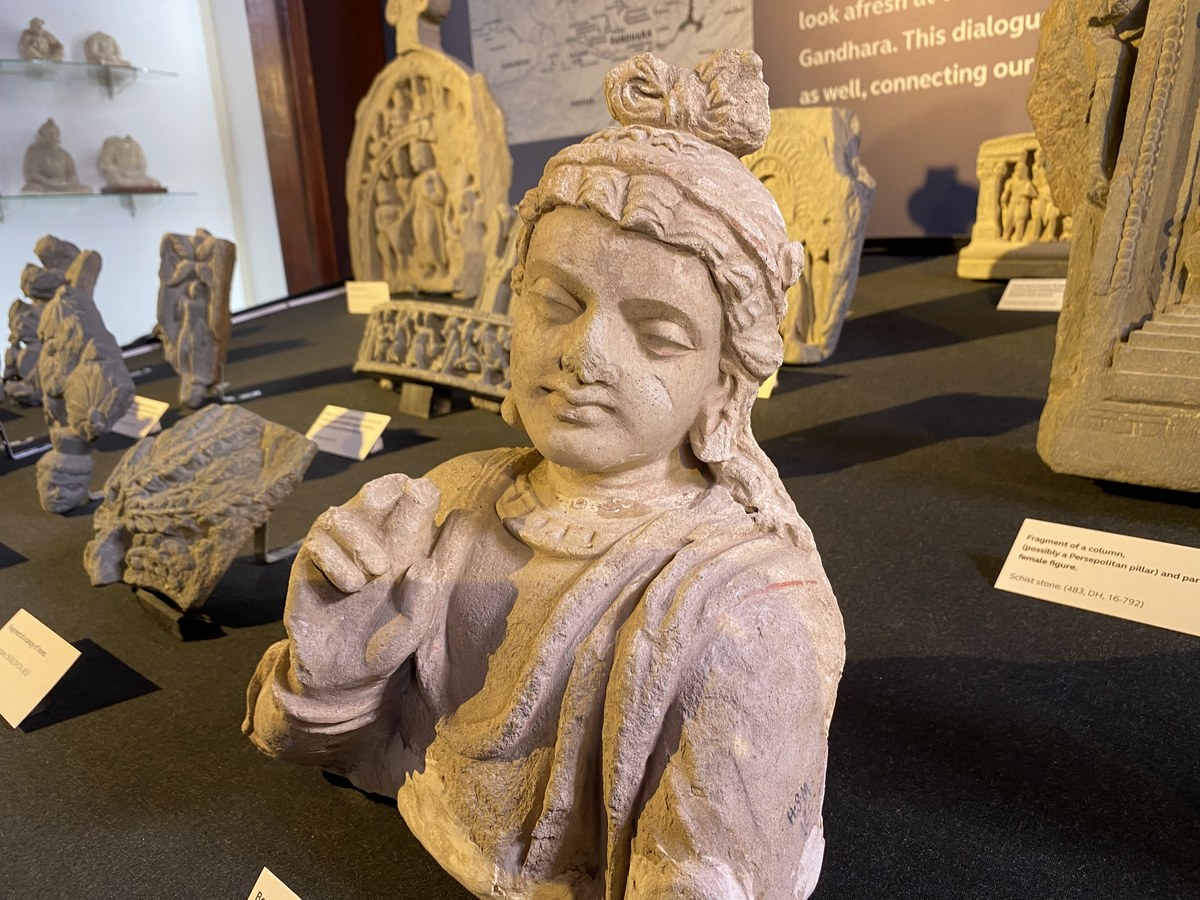
A bust of Bodhisattva, a person on the path to Buddhism, made in stucco at the Gandhara Roots and Routes exhibit at the Taxila Museum in Taxila, Pakistan on October 13, 2021 (AN Photo)
Taxila museum deputy director Mohummad Iqbal Khan told Arab News the exhibition was a demonstration of the dedicated work of archaeologists.
“We are a historical part of the world, but we are also a tourism hub for Pakistan and we want to show the modern-day softer image of Pakistan to the world and celebrates its diverse history,” he said.
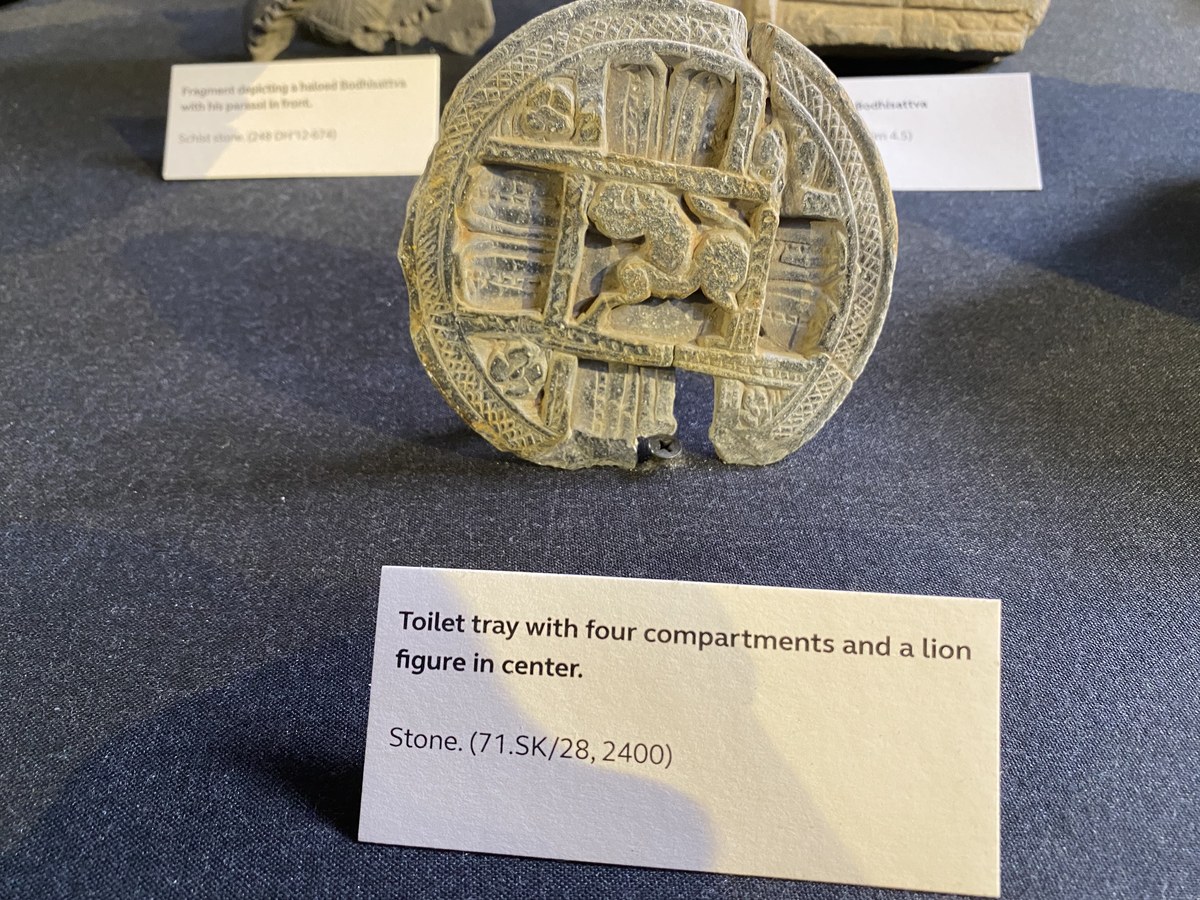
An ancient toilet tray at the Gandhara Roots and Routes exhibit at the Taxila Museum in Taxila, Pakistan on October 13, 2021 (AN Photo)
Noorani said she hoped that Pakistan would invest in its museum culture and recognize the value of such exhibits.
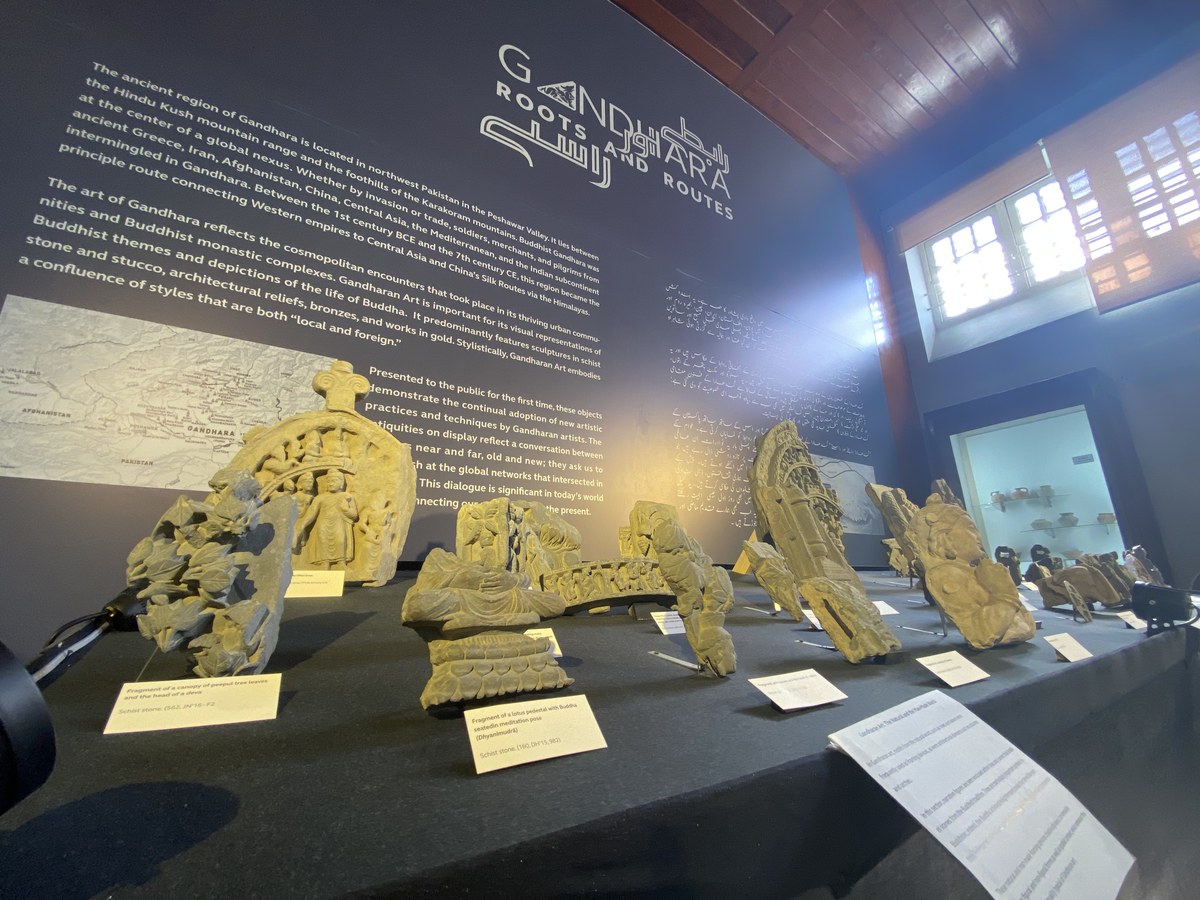
A view of the Gandhara Roots and Routes exhibit at the Taxila Museum in Taxila, Pakistan on October 13, 2021 (AN Photo)
“It is important to be curious about our history and to understand how ancient our region really is,” she said. “We don’t have a singular history; we have multiple histories. The more we educate ourselves and our children about the diverse background we come from, the more tolerant, open minded and global we will be on a local level.”












